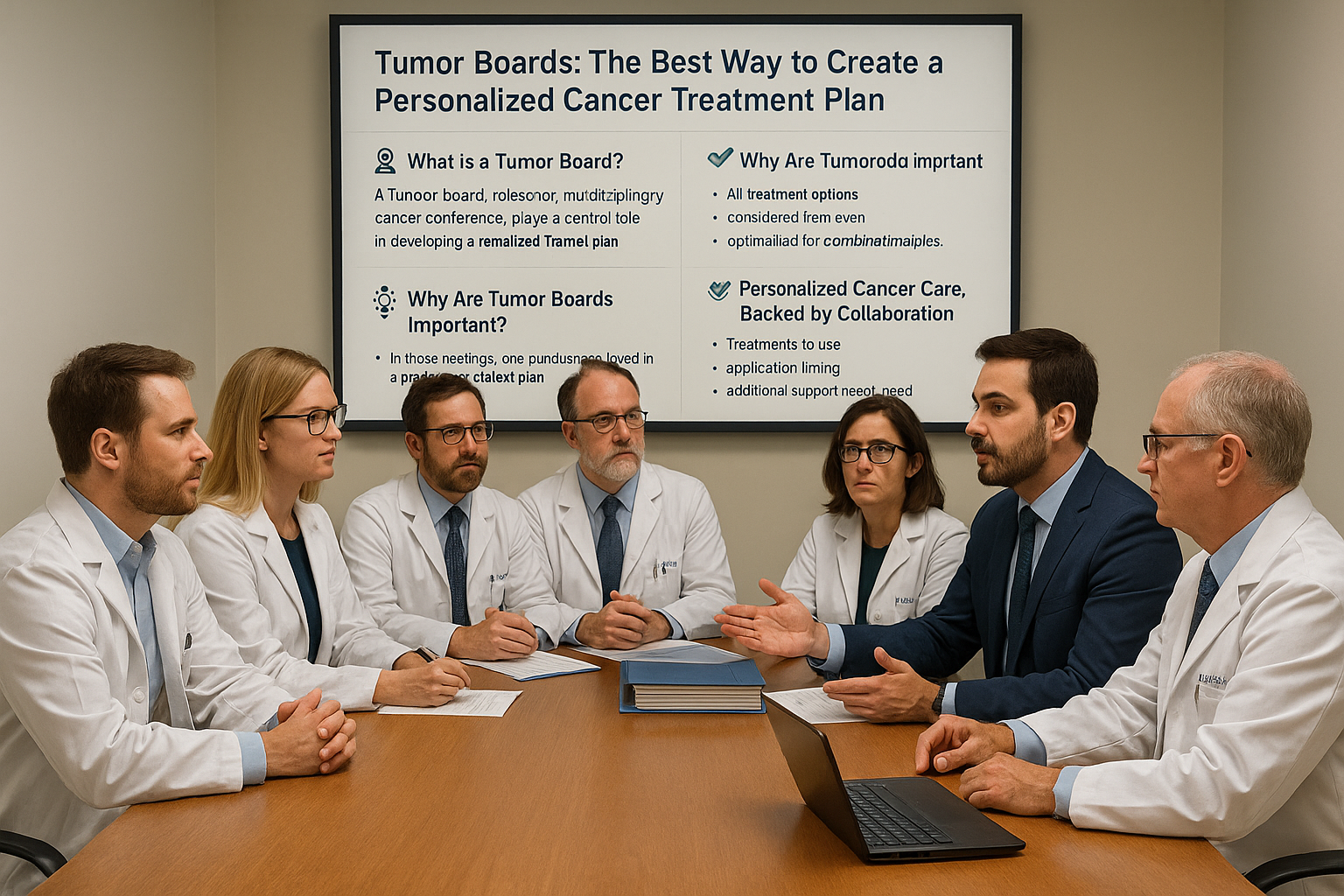Today, we have more powerful tools than ever to fight cancer — including surgery, chemotherapy, radiation therapy, immunotherapy, and targeted treatments. To guide the use of these treatments, doctors often refer to international cancer treatment guidelines, which are based on the latest scientific evidence. However, while these guidelines offer valuable recommendations, they cannot account for the unique needs of every individual patient. This understanding has given rise to the concept of personalized cancer treatment — the idea that even two patients with the same type and stage of cancer may require different treatment approaches based on their overall health, preferences, and specific circumstances.
🔬 What Is a Tumor Board? A tumor board, also known as a multidisciplinary cancer conference, plays a central role in developing a personalized treatment plan for cancer patients. In these meetings: • Specialists from all fields involved in cancer care come together — including surgeons, medical oncologists, radiation oncologists, radiologists, pathologists, and more. • The patient’s full medical history, imaging, pathology results, and treatment needs are presented and reviewed. • The team discusses the best possible treatment strategy, tailored to the patient’s condition.
💡 Why Are Tumor Boards Important? Tumor boards ensure that: • All treatment options are considered from every angle • The sequence and combination of therapies are optimized for the individual patient • The treatment plan is based not only on evidence-based guidelines, but also on real-world clinical experience • The patient benefits from the collective expertise of multiple doctors — not just one opinion
✅ Personalized Cancer Care, Backed by Collaboration At the end of each tumor board discussion, a consensus decision is reached regarding: • Which treatments to use (surgery, chemotherapy, radiation, etc.) • How and when to apply them • What additional support the patient may need (e.g., nutrition, psychology, rehabilitation) This process ensures that every cancer patient receives a treatment plan tailored specifically to them, giving them the best chance for a successful outcome.



